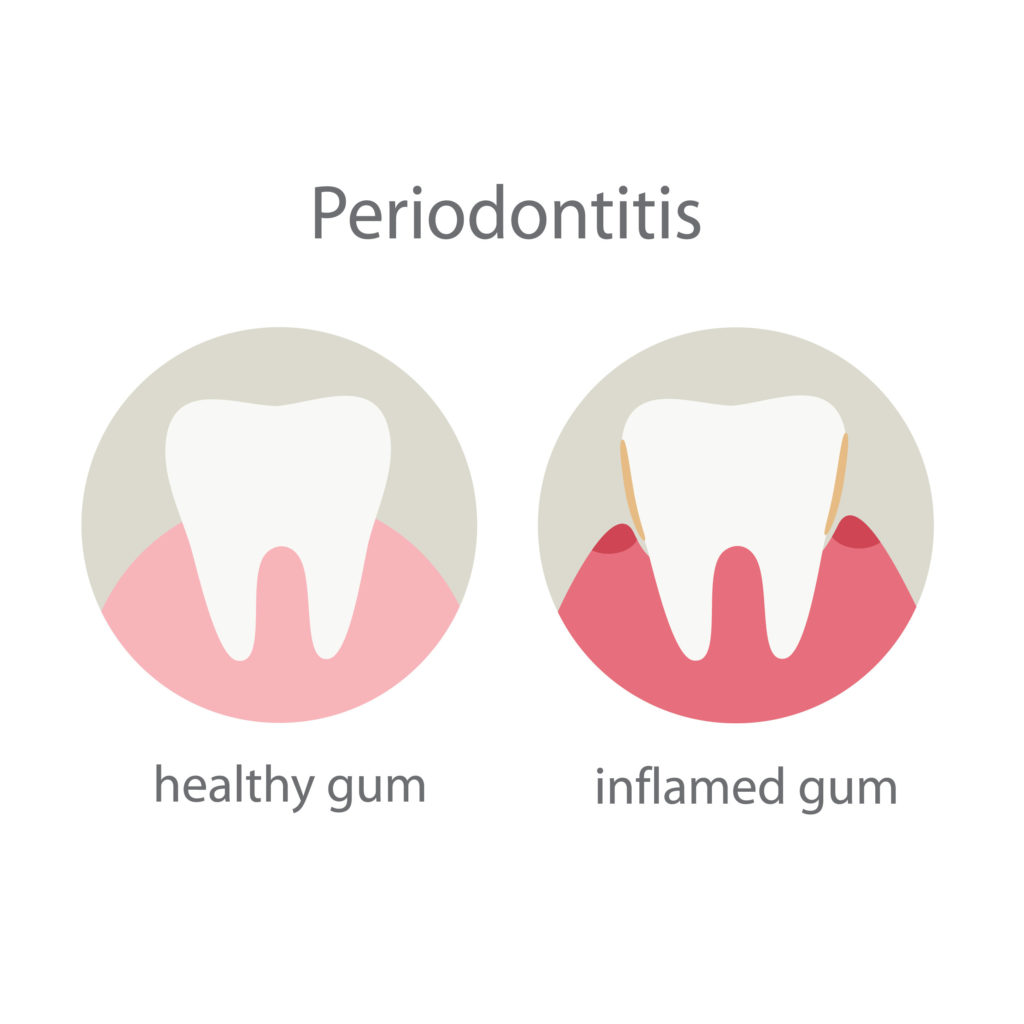Each day seems to bring more health news linking gum disease to yet another systemic disease. Several recent studies have shown a possible connection between gum disease and Alzheimer’s disease.
MORE RESEARCH FINDS THAT GUM DISEASE IMPACTS YOUR OVERALL HEALTH

We already know that the bacteria in gum disease can travel through the body. Staying on top of your oral health may help you avoid lung cancer, pancreatic cancer; improve diabetes symptoms, rheumatoid arthritis and more.
Now new research shows there is a possible link between the bacteria from gum disease and Alzheimer’s disease.
One particular molecule (lipopolysaccharide) found on the bacteria of gum disease can be transported to the bloodstream by normal activities like chewing, eating and brushing your teeth.
ALZHEIMER’S DISEASE STUDY
One recent trial at The University of Central Lancashire (UCLan) School of Medicine and Dentistry in England studied the brain tissue of 10 people with dementia and ten without. They found that of the ten people with dementia, four had the molecule Lipopolysaccharide on the bacteria in their brain tissue while none of the ten patients without dementia had the bacteria in their brain tissue.

It is believed that when the Lipopolysaccharide bacteria reach the brain, it triggers an immune response similar to what happens in the mouth. When this occurs, it kills brain cells, possibly leading to changes in the brain much like Alzheimer’s causing confusion and deteriorating memory.
In another study, a Taiwanese research team found that of people over the age of 50, those who had periodontitis for more than 10 years were 70 percent more likely to develop Alzheimer’s disease. Dr. Nemeth has found evidence that points this condition to a specific type of bacteria found in the mouth of those with periodontal disease.
Spirochetes are bacteria found in the gums of patients with gum disease or periodontitis. These organisms can get into your blood stream and make their way to your brain. After reaching their destination they create a biofilm to protect themselves within the neurological tissue. If our bodies attempt to kill these micro-organisms, it actually causes the destruction of neurological tissue, leading to an increased risk of developing Alzheimer’s.
SPIROCHETES IN GUM DISEASE
More studies are underway which we hope will give more clarification on this link but keeping on top of your oral health should always be a priority. Brush morning and evening, floss after meals and be sure to get regular cleanings/maintenance. If you have any pain or sensitivity, be sure to make an appointment to see your dentist and get it taken care of quickly.

Avoiding a cause of or contributor to systemic diseases is your best option for continued good health.
Your health matters to us. If you have any questions concerning this post, call us at (248) 357-3100 today.
We’re always happy to hear from our awesome patients!
The content on this blog is not intended to be a substitute for professional medical advice, diagnosis, or treatment. Always seek the advice of qualified health providers with questions you may have regarding medical conditions, Alzheimer’s or gum disease.
